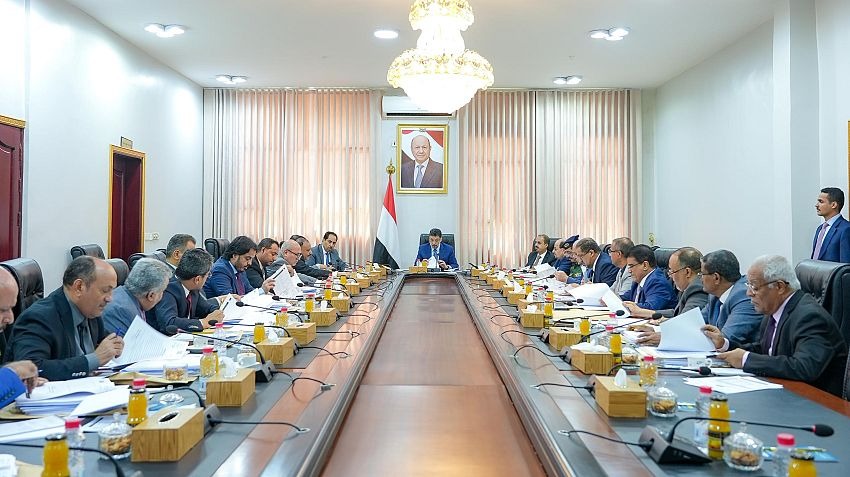


Barran Press
The internationally recognized Yemeni government announced a series of measures aimed at stabilizing the national currency and preventing further devaluation of exchange rates during a Cabinet meeting on Monday, October 21, 2024, in Aden, the country’s temporary capital.
During the meeting, chaired by Prime Minister Ahmed Bin Mubarak, officials reviewed the current fluctuations in exchange rates and the impact on citizens' daily lives. The Prime Minister provided a comprehensive overview of the initiatives undertaken by the Presidential Leadership Council, the government, and the Central Bank of Yemen to address the ongoing decline of the national currency.
The Cabinet emphasized the need for coordinated efforts across all state institutions to tackle economic challenges as a top priority. They reiterated the importance of implementing directives from the Presidential Leadership Council and enhancing cooperation between fiscal and monetary policies.
Key measures discussed during the government meeting included:
Additionally, the government pledged to prioritize economic, financial, and administrative reforms, enhance transparency, combat corruption, and ensure the state’s access to public resources while fulfilling its obligations.
The Cabinet also stressed the importance of implementing agreements with the Central Bank to coordinate financial and monetary policies, as well as expediting overdue salary payments for state employees.
The government expressed hope that Yemen's partners, particularly Saudi Arabia and the UAE, would support its efforts to maintain economic stability and regulate the national currency due to ongoing disruptions in oil exports, rising shipping costs, and the adverse effects of Houthi attacks on living conditions.
Yemen is currently grappling with a severe monetary crisis, as the local currency continues to decline. The exchange rate for the rial has dropped to record lows, with the dollar exceeding 2000 rials in Aden, up from 1676 rials in late April, while the Saudi rial has reached 524 rials for sale. In contrast, the rial has remained relatively stable in Houthi-controlled areas.
Last week, the Central Bank's Board of Directors urged the Yemeni government to reconsider its financial and economic policies, particularly regarding resource mobilization and expenditure planning.